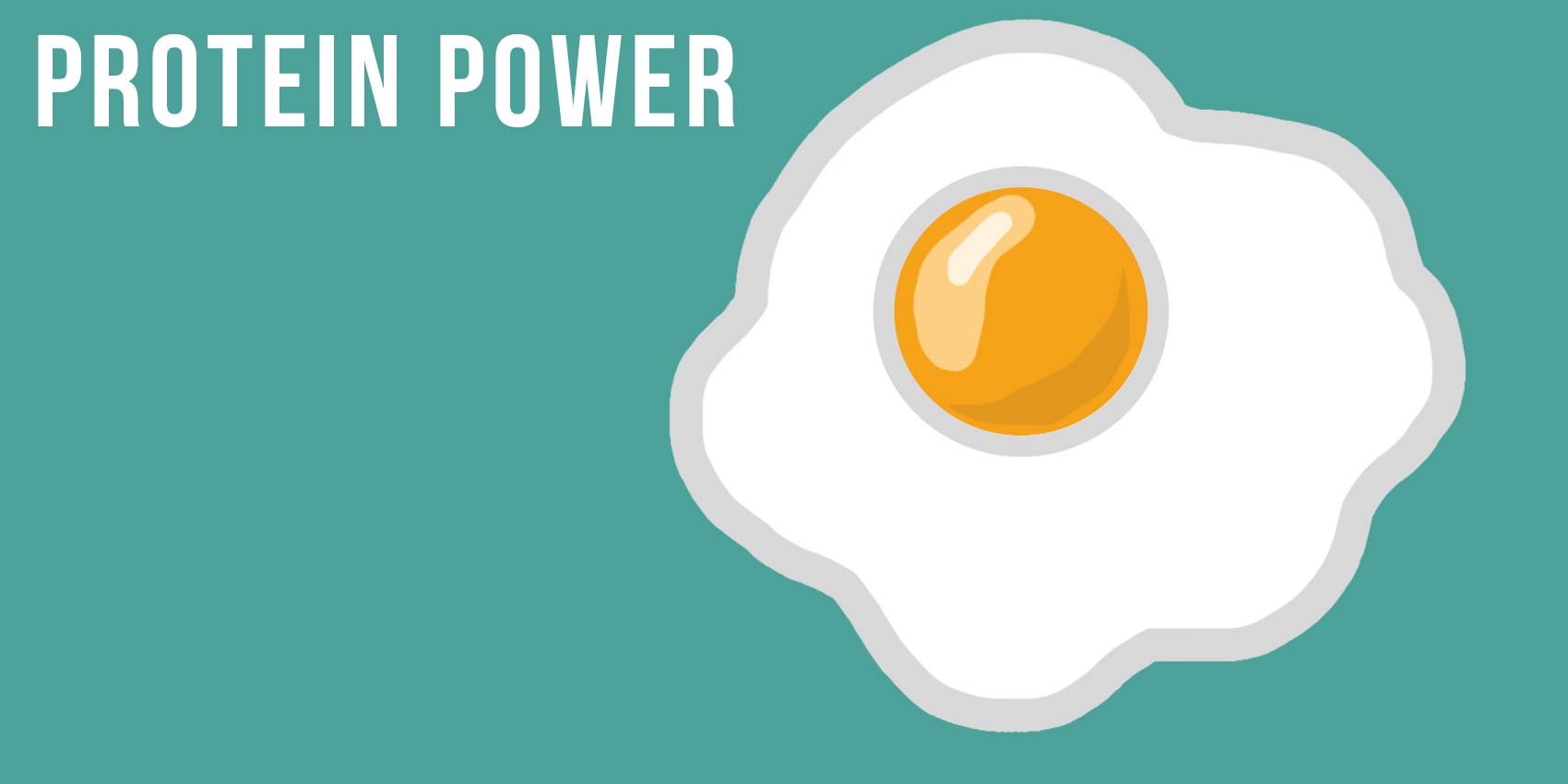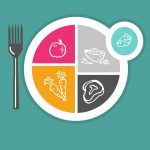14 Sep Protein power

The last fourth of your plate is for protein. Wait!!! Wasn’t that a name of one of the building blocks? Yes! Good catch. So when the term protein is used here, it is for foods that are primarily made up of the protein building block, just like grains and vegetables are primarily made up of carbohydrates.
While carbohydrates provide energy, proteins provide the necessary building blocks for your muscles and organs… even that big one called your brain! Proteins are involved in virtually all cell functions in your body. Your body needs proteins to stay strong, to repair itself, to move, to think – you name it. Proteins are undeniably essential in your diet and should be about 20% of your calories.
Proteins fall into two categories: plant-based and animal-based. Some people (for example, vegetarians) choose only to have plant-based proteins. Choosing to eat all plant-based foods versus incorporating animal products is a personal choice according to what feels right for you. However, the American Institute for Cancer Research suggests that if you do eat meat, try to have 2/3 of your proteins come from plants and 1/3 from animals. This is because the plant-based sources help fight cancer.
Moreover, plant-based protein, like beans, also contain fiber while animal protein like eggs and fish do not contain fiber.
(You can learn more about plant-based versus animal-based protein in Nutrition III.)
Plant-based foods do not contain cholesterol, a type of animal fat that can be difficult on the heart. Animal-based proteins do. As you get older, your doctor may start to monitor your cholesterol levels in your blood to make sure you are not at risk for heart issues. This is one reason why some people recommend avoiding animal-based proteins, but the choice is always yours. Curious about cholesterol? Click here…
So just what foods are considered to be proteins? Examples of protein-rich foods are:
- Nuts
- seeds
- tofu and tempeh
- eggs
- fish
- chicken
- beef
- pork
- turkey
- tempeh (fermented soy beans)
- soy beans
- lentils, beans like black beans, chickpeas and kidney beans
- sugar snap peas
When choosing animal proteins, you want to choose meats that are lean (don’t have a lot of fat content) and minimally processed (deli meats are often processed – they need to be to last so long in that case!). Leaner meats are fish and poultry. Whereas meats such as beef and bacon (pork) tend to have a higher fat content.
Remember, processed foods are foods that are changed from the way they are naturally. A grain is processed by removing its husk and germ to mill it down to its smallest component. You learned about that in the “Great Grains” sub post. Processed meats are altered as well. They usually have preservatives added to them to preserve their shelf life, such as sodium nitrates (usually listed as nitrates) that turn into potentially cancer causing chemicals in your body. They also often have lots of fillers (gross! don’t even ask!). In short, to make these meats, manufacturers take the meat off the bone, add chemicals and press it into a mold. Some examples of uncooked processed foods are raw sausages. An example of pre-cooked processed meats that require additional cooking at home are hot dogs, and fully cooked processed meats are salami and most deli meats. So read the label (to avoid sodium nitrates) and be sure you are choosing meats that do not contain fillers! What is in your hot dog? Your sausage? We love protein for all its benefits, but please be careful about which proteins you choose.

TIP! Low-sodium turkey breast from the deli counter is a smart choice because it is loaded with protein (18 grams in 3 slices) for fewer than 100 calories. And the reduced sodium is key because deli meats are loaded with sodium (one serving provides nearly a third of all the sodium you should get in a day).
What about red meat you ask? Why do some people avoid it even though it is a protein? And, after all, a steak is not processed… Actually, red meat is very high in saturated fat and cholesterol. Everyday consumption of red meat can contribute to cardiovascular disease, but red meat does contain nutrients and vitamins that are quite good for your body, so eating it in moderation can have benefits. One or two portions a week is plenty to provide those benefits without racking up risk. You may choose not to eat red meat at all and gain all the nutrition needed in other ways. For instance, you can eat plenty of iron from spinach and whole greens are incredibly important for your health. The choice to do so is yours.

DID YOU KNOW? Need a great snack? Try peanut (or almond) butter on apples, carrots, or celery, OR try a handful of walnuts with an orange.
(Btw, nuts and seeds contain not only healthy fats and protein but also fiber. This means they make great snacks!).




Post Question:
Do you eat meat? Why or why not?
Answer the post question here
What's being said